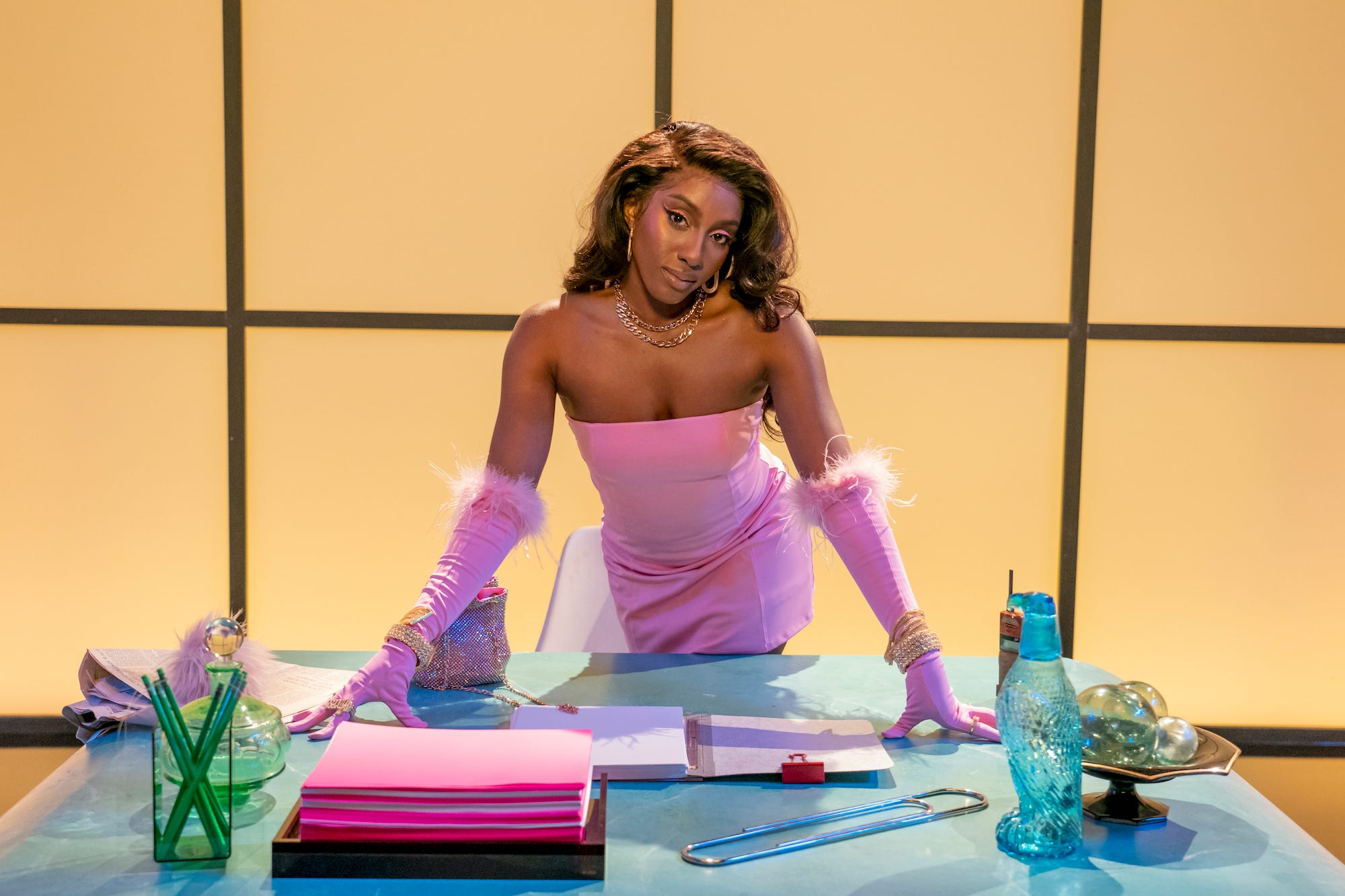
Greg Endries/SHOWTIME
- Ziwe spoke to Insider about her new Showtime series, premiering Sunday, May 9 at 11 p.m. ET.
- The series is a mix of at-times cringey interviews, sketches, music and "easter eggs," she said.
- Ziwe sits down with celebrities such as Jane Krakowski, Fran Liebowitz, Bowen Yang and more.
- Visit Insider's homepage for more stories.
The Internet is often blamed for a lot of things, but it did give us Ziwe, the deadpan, pink eyelash-wearing comedienne who, back in 2017, carved a space for herself on the world wide web with "Baited with Ziwe," where she had uncomfortable yet hilarious interactions with people about race-and catapulted her career.
Perhaps you recall her famous sit-down with Caroline Calloway, who admitted, among other wild things, that she "discovered" racism in 2018. Without missing a beat, Ziwe asked her, "What were you doing for the first 25 years of your life?" And this kind of entertainment was given to us for the low, low price of totally free.
Fast forward to 2021, with writing for "Desus and Mero" now under her belt, the mononymic star has kicked her comedy up yet another notch with her upcoming self-titled series on Showtime that includes more baiting and amusingly awkward conversations, satiric music videos, and sketches that poke fun at our problematic society. But this time, the content is exclusive (the cable network didn't even offer screeners of full episodes of "Ziwe" in time for publication).
We did, however, score a peek at guest and equally insightful humorist Fran Liebowitz conceding that she doesn't think about race as much as Ziwe. We also see comedian and "Together Together " star Patti Harrison and Ziwe twerking in miniskirts and bling in a rap video titled "Stop Being Poor," that includes the lyrics, "If you have medical debt, just call your provider." There's also a sketch with "How I Met Your Mother" star Cristin Milioti and "30 Rock" actress Jane Krakowski (yes, Ziwe has upped the celeb factor here) as closeted Karens with an American Girl fetish.
While Ziwe is obviously addressing very real subjects in her comedy (this is the same woman who previously sipped out of mugs with the words "white tears" on them as her guests took several Ls on the couch next to her), she's doing it in her own fresh, irreverent way that makes it easy for people across races to enjoy.
"It has to be accessible to a mass audience, and they have to find it funny," Ziwe told Insider while donning a fluffy pink sweater with a bouquet of flowers as her Zoom background. "Because I'm not a drama; I am a comedy."
Just days away from her primetime debut as the show writer, executive producer and star of "Ziwe," the Nigerian American multihyphenate sat down with us to discuss creating art that imitates her life, growing up in Massachusetts with pop star aspirations, and punching up at the powers that be.
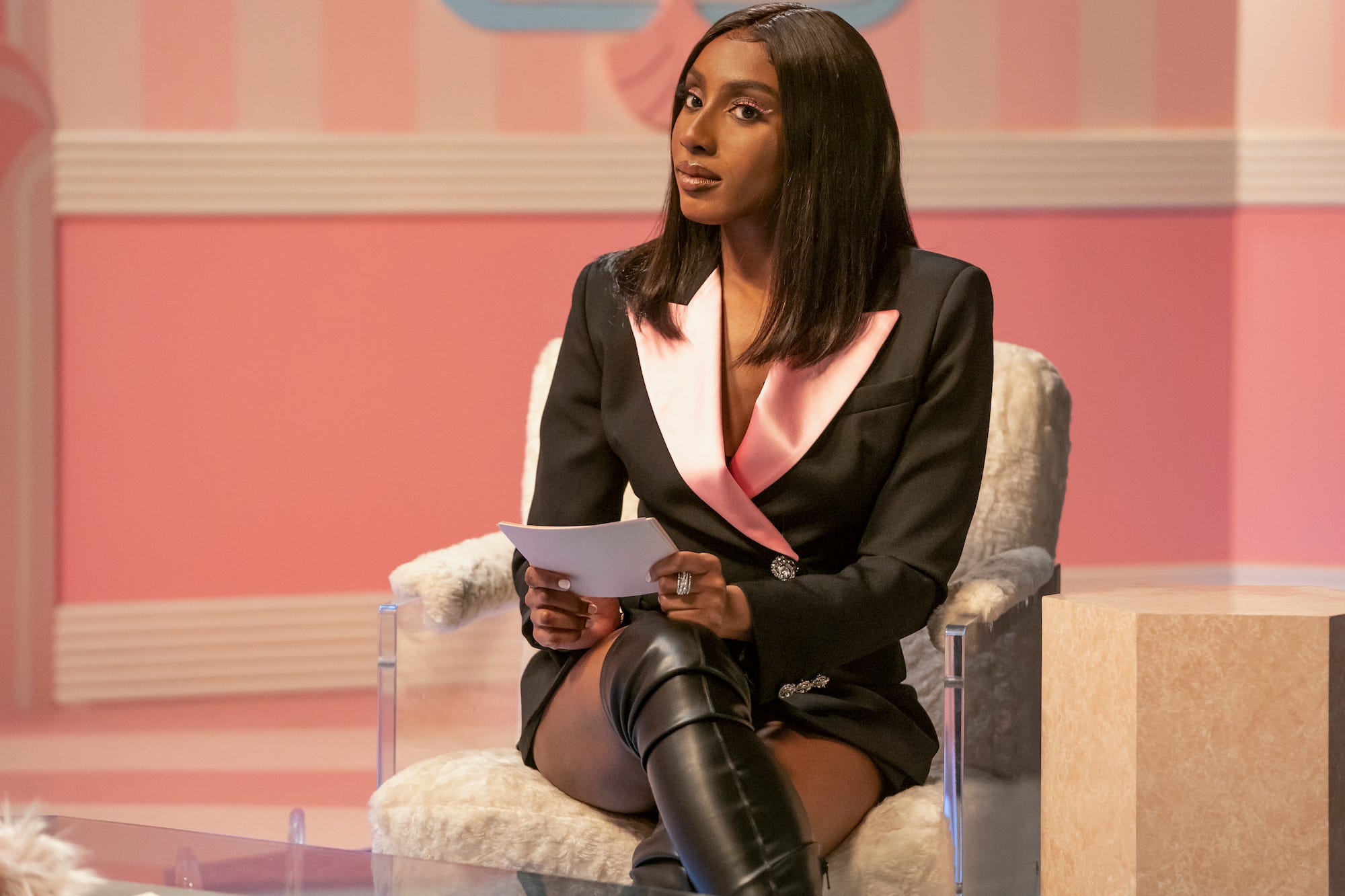
How did your experience growing up in Massachusetts shape your comedy?
My experience growing up in Massachusetts shaped my comedy because New Englanders were taught that they were on the right side of history [regarding] the Civil War, that it's a post-racial society, everything is gravy. And I learned very quickly that that's not the case. So, it was really interesting to analyze the ways in which prejudice and ignorance permutate in northern space.
Was it always your intention with your comedy to explore issues of race and, to use your word, "bait" people about the topic?
It's kind of complicated. My art imitates life. So, the ways in which I interpret my life experiences will reflect the art that I create. So, it's not that I woke up one day and said, "Race is important to me and thus it will be my art." It was merely that these were things that I had to confront throughout my life. I found them to be both tragic and hilarious. So, my ways of coping with trauma are to laugh.
The new Showtime series is fast approaching, yet I'm told none of the episodes are ready to screen yet. Is that because as a comedian in the social media and 24-hour news cycle era, you often find yourself doing a lot of editing or rewriting up to the moment?
Oh, yeah. We shot this in 15 days in February. And the show premieres May 9. So, we are working through this process. That element of it is just a very quick turnover. But also, you have the script that you write, you have the script that you shoot, and then you have the script that you edit. So, each and all the episodes, while we shot them in 15 days, influence each other when we put them together over the course of six episodes.
We're constantly writing and rewriting and that's what makes really good art - the ability to go back and hold what you're trying to say and make sure you're saying it right and make sure it's funny.
Jokes that worked on the page may not work when you actually deliver them or in the edit. You're constantly trying to refine, refine, refine before it gets to wider audiences because I want you guys to have the best product possible.
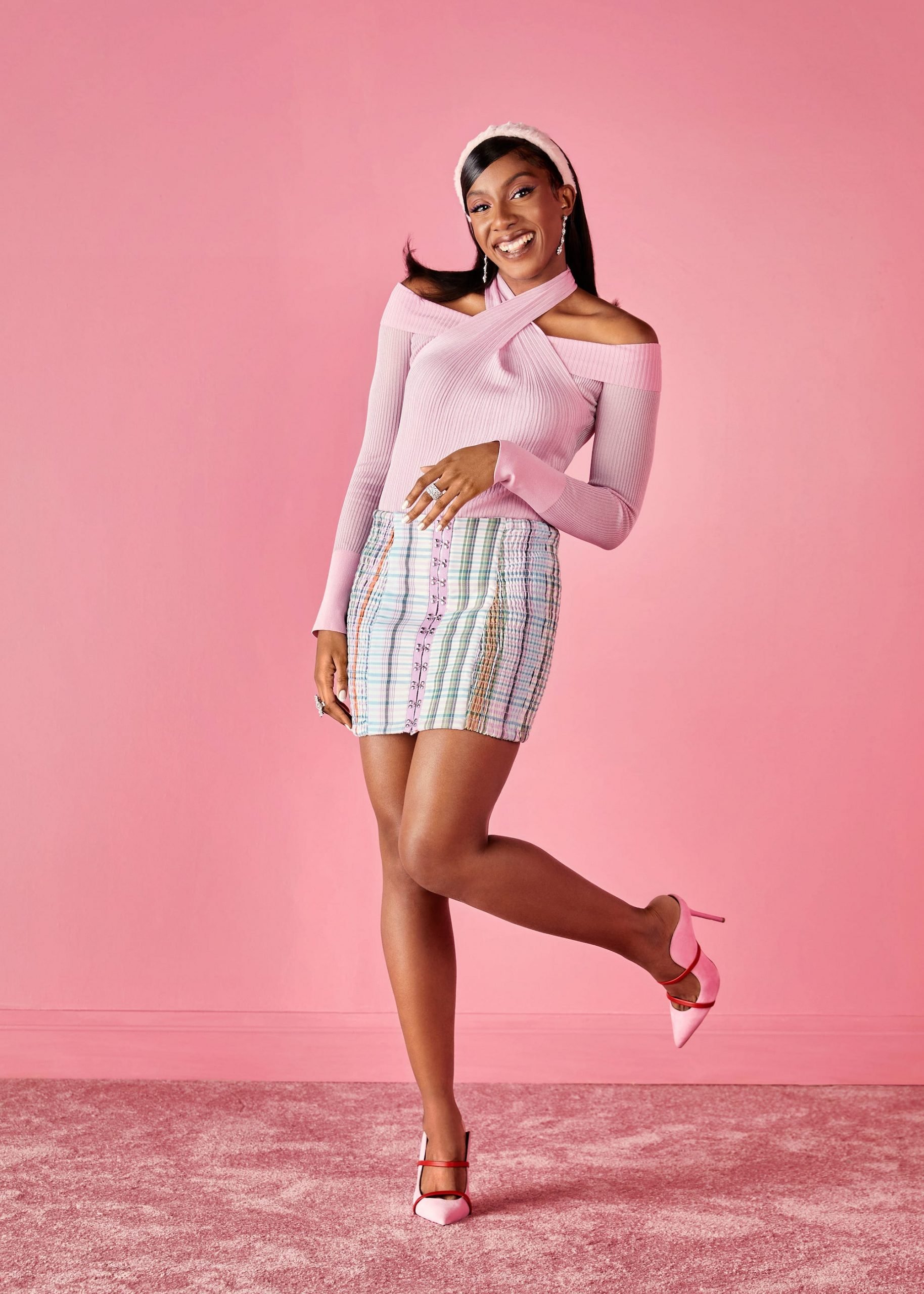
With your "move" to Showtime, was there anything that you wanted or needed to adapt for the new audience?
Ultimately, it's really down to scaling the production. You guys watched me last summer interview Alyssa Milano and Caroline Calloway and Alison Roman from my bedroom. I was the set designer. I was the interviewer. I was talent. I was talent booker. I was researcher, writer … I was doing it all.
And just by virtue of having the privilege of collaborating with Showtime, I now have an entire team dedicated to booking people like Fran Lebowitz or writing questions in collaboration with me or set designing things like the "Stop Being Poor" music video. So, as a result of having a full-fledged team, in partnership with A24, you really see the aesthetic and the jokes shine in a way that they couldn't possibly when I was producing the show for myself.
You've often asked your guests why they decided to be on your show. So, I'll turn that around on you: Why do you invite them?
Well, because they're interesting, and have something compelling to say about race - and I know, it would be a fantastic, hilarious interview. Ultimately, it's about comedy and healing people through laughter. So, our goal is to create really funny moments. Each of my respective guests - Fran Liebowitz, Ebony K. Williams, Adam Pawley, Julio Torres, Bowen [Yang] and Patti [Harrison], as well as Phoebe Bridgers - all brought a unique comedic sensibility to the show. And it's such a privilege to talk to them.
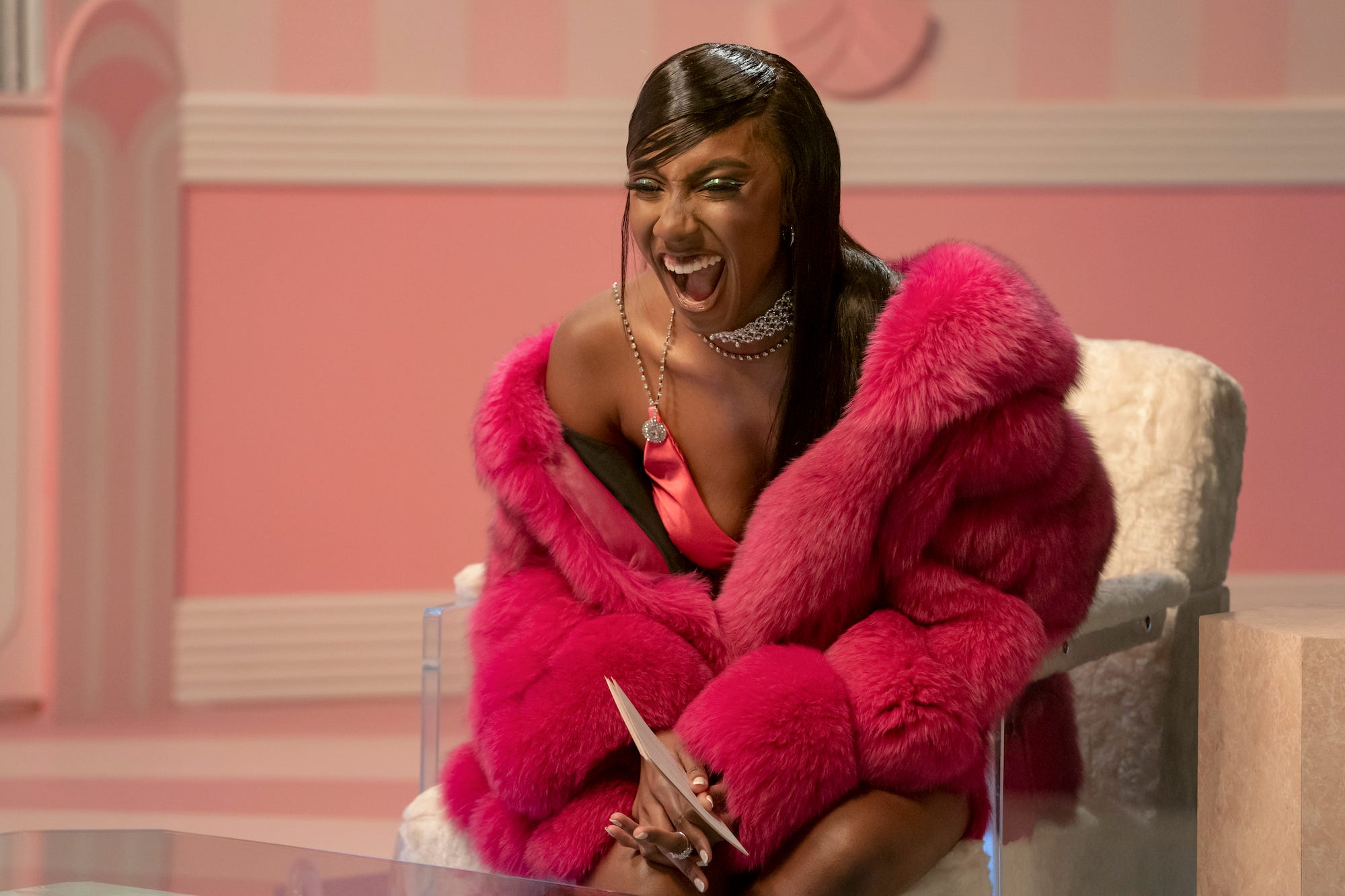
Barbara Nitke/SHOWTIME
Was there something specific that happened in the news cycle or on social media that you wanted to find a way to respond to on this show?
There are definitely easter eggs throughout the show. But also, each of the pieces are influenced by the news and my experiences with society. Like, "Stop Being Poor," for example, that's a direct response to last summer when we watched people struggle between stimulus checks and lose their homes. The only aid that they were given was figure it out, pull yourself up by your bootstraps. I watched those callous responses to American citizens, and I had to write a song about it. It is a reflection of the ways in which people are just like, "I don't know, stop being poor." All the texts that we create are in conversations with what's going on in the world. That's the best satire.
There's obviously a large landscape to pull from in order to achieve a laugh. Is there something that you absolutely won't touch?
My comedy aims to punch up at those powers. So, I'm not trying to make marginalized communities feel horrible about themselves. I'm not trying to bully anyone. That's never my intention. So, by the virtue of punching up, I try not to punch down. And when I do punch down, I apologize profusely because that's not my intention.
Your music is particularly striking, because it's a mix of satire and poignancy existing entirely in the comedy space. And you're clearly having so much fun with it. How was this musical side of your art manifested?
I was a musical kid. I grew up watching Britney Spears doing "I'm a Slave 4 U" with a snake over her head! And I was like, "This is so cool. I want to do that. I want to be a pop star." And I learned very quickly that it's very hard to be a pop star. So, I settled for a comedian. I was president of my a capella club in high school. I have a mix tape. I've made music before. So, this is not new. It's new to this space, but I've always been musical.
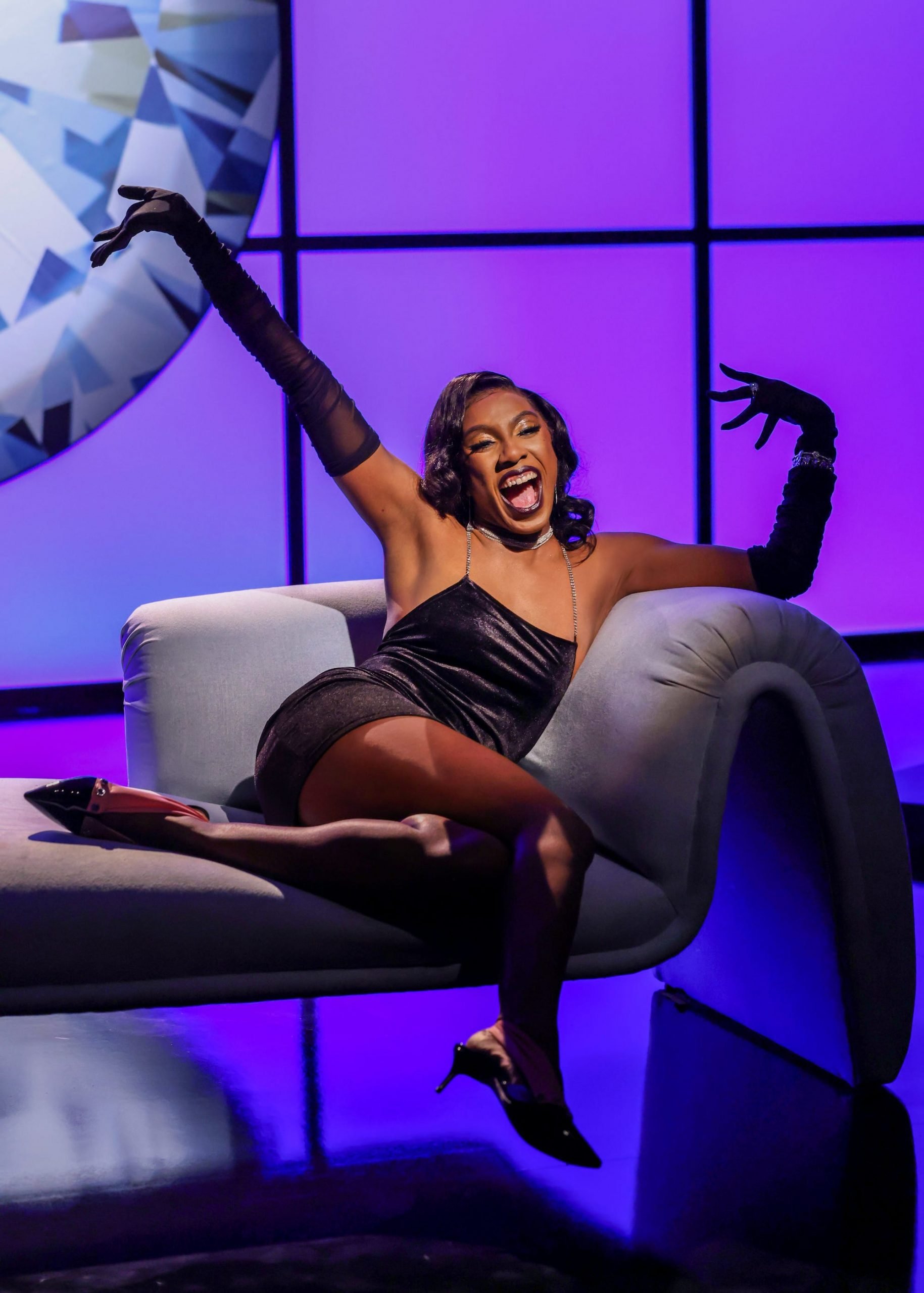
Since so much of yourself and your experiences are intertwined with your onscreen persona, who is Ziwe off camera, when she's not being "Ziwe?"
That's a hard question to answer. It's almost external. I'm silly, but I'm silly on camera. I think the character I've created on my show is a hyperbolic version of myself. But there are elements of me in that character.
Which other aspects?
My natural inquisitiveness, my musical inclinations. These are all reflections of the work I've been creating for years, which is part of who I am. I'm an artist. I've been an artist all my life. Even when I was working in a marketing job or at a restaurant or in college, I've always been artful.
You've spoken in the past about a sense of validation as your comedy has grown and become more popular. Now that you have everyone's attention, what are you going to do with it?
My validation doesn't actually come from external forces. That comes from within me. But what am I going to do now is, hopefully, punch up at those in power and say something really important and defend those who cannot defend themselves.
This interview has been edited for clarity.